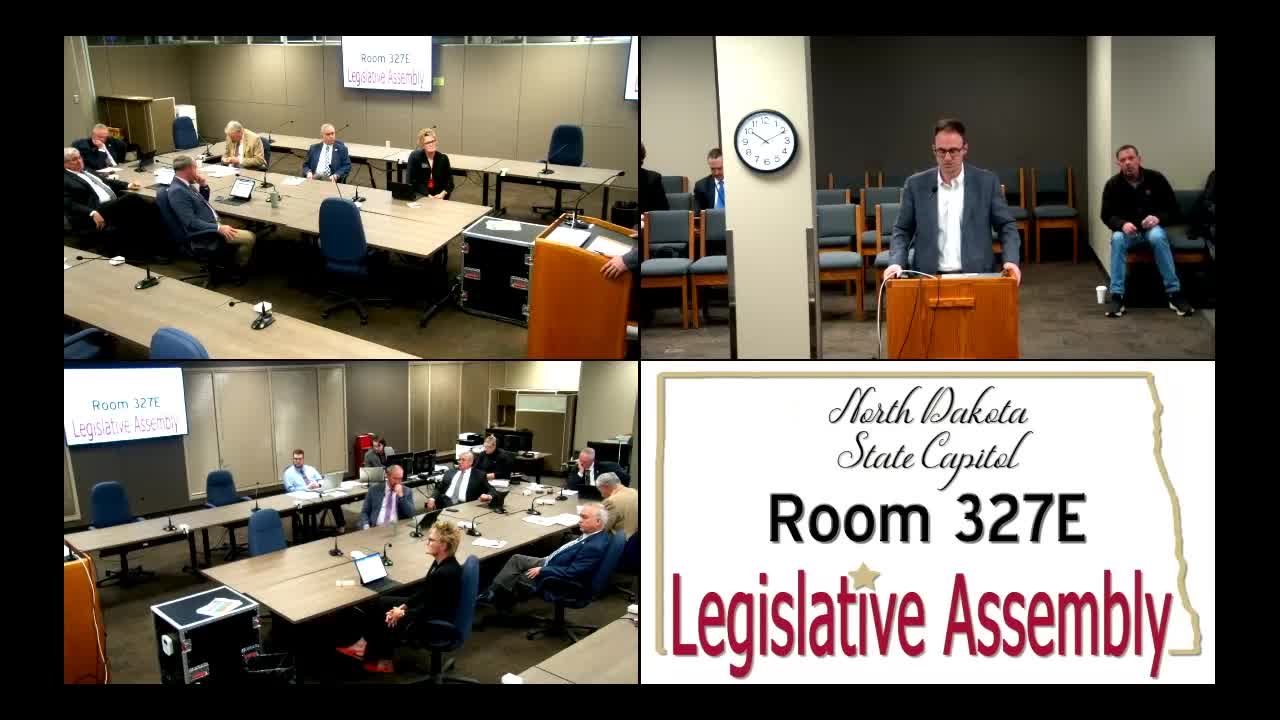Energy Sector Faces Challenges from Wind Subsidies and Market Dynamics
April 26, 2025 | House of Representatives, Legislative, North Dakota
This article was created by AI summarizing key points discussed. AI makes mistakes, so for full details and context, please refer to the video of the full meeting. Please report any errors so we can fix them. Report an error »

Federal subsidies and the competitive landscape of energy generation took center stage during the North Dakota State Legislature's HB 1279 Conference Committee meeting on April 26, 2025. A key speaker highlighted the challenges faced by coal power plants, which employ around 12,000 workers and contribute approximately $5.5 billion to the state's economy annually.
The discussion revealed that while coal plants are vital to the local economy, they are struggling to compete in a market increasingly dominated by wind energy. Wind power, benefiting from a production tax credit that was recently increased to $27 per megawatt hour and tied to inflation, receives priority access to the energy marketplace. This situation forces coal plants to reduce their output when wind energy is available, leading to decreased revenues and financial strain.
The speaker emphasized that coal generation costs range between $35 to $50 per megawatt hour, making it difficult to remain profitable when wind energy prices drop. "There are a lot of days we're not making any money in the market," they stated, underscoring the economic pressures on coal power.
Politically, the speaker expressed support for the Trump administration's efforts to roll back regulations affecting the energy sector. However, they acknowledged the challenges of repealing the production tax credit for wind, noting that achieving the necessary 60 votes in the Senate would be difficult, even among Republicans.
This meeting highlighted the ongoing tension between traditional energy sources and renewable energy, raising questions about the future of coal in North Dakota's energy landscape. As the state navigates these challenges, the implications for jobs, economic impact, and energy policy remain significant.
The discussion revealed that while coal plants are vital to the local economy, they are struggling to compete in a market increasingly dominated by wind energy. Wind power, benefiting from a production tax credit that was recently increased to $27 per megawatt hour and tied to inflation, receives priority access to the energy marketplace. This situation forces coal plants to reduce their output when wind energy is available, leading to decreased revenues and financial strain.
The speaker emphasized that coal generation costs range between $35 to $50 per megawatt hour, making it difficult to remain profitable when wind energy prices drop. "There are a lot of days we're not making any money in the market," they stated, underscoring the economic pressures on coal power.
Politically, the speaker expressed support for the Trump administration's efforts to roll back regulations affecting the energy sector. However, they acknowledged the challenges of repealing the production tax credit for wind, noting that achieving the necessary 60 votes in the Senate would be difficult, even among Republicans.
This meeting highlighted the ongoing tension between traditional energy sources and renewable energy, raising questions about the future of coal in North Dakota's energy landscape. As the state navigates these challenges, the implications for jobs, economic impact, and energy policy remain significant.
View full meeting
This article is based on a recent meeting—watch the full video and explore the complete transcript for deeper insights into the discussion.
View full meeting
